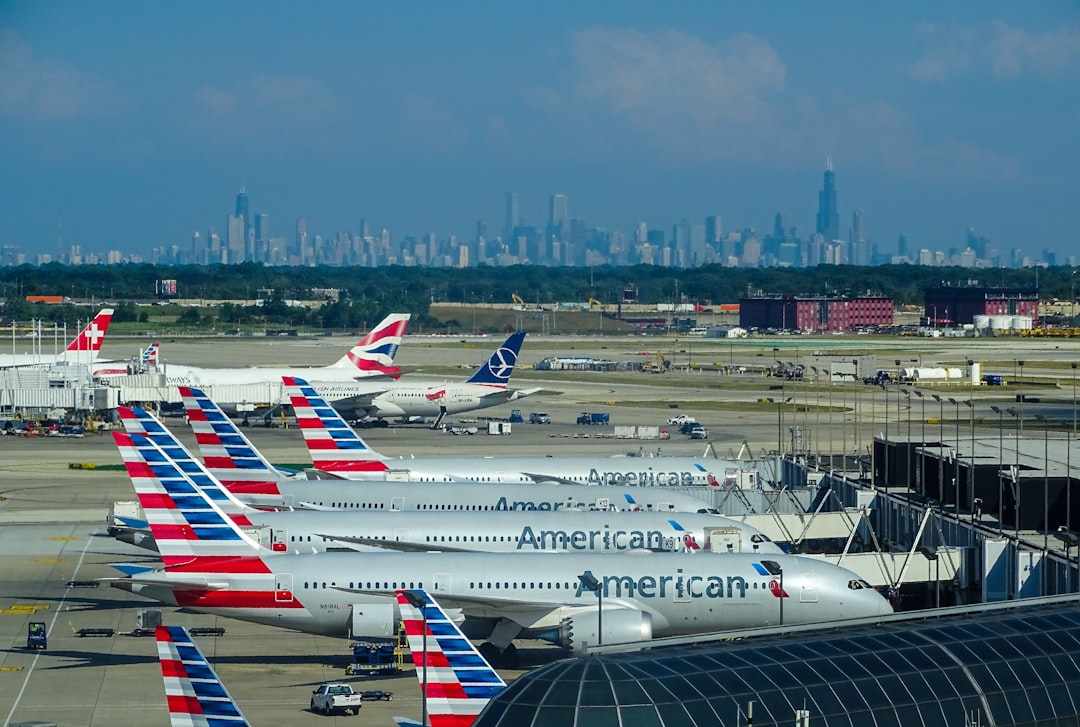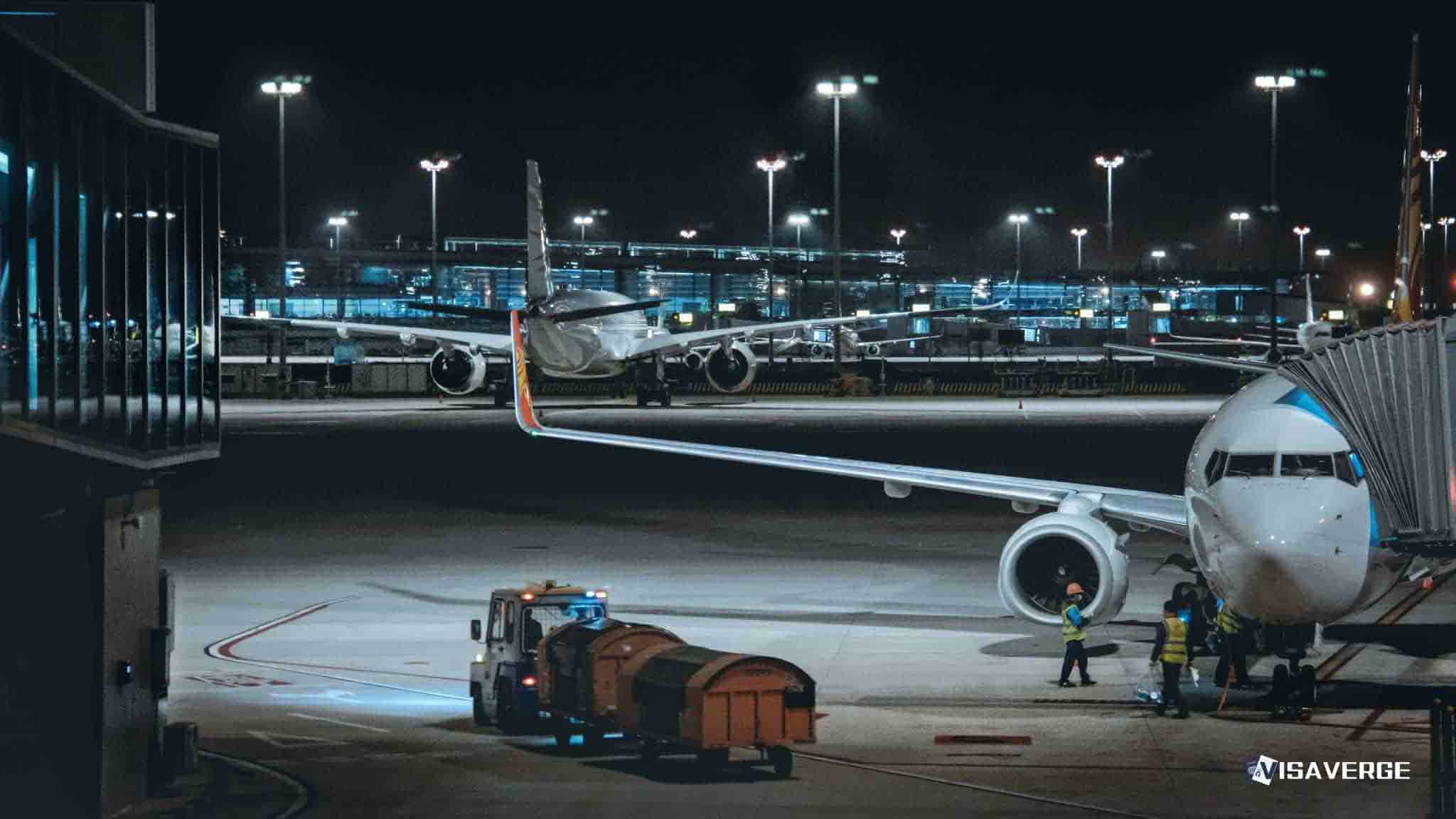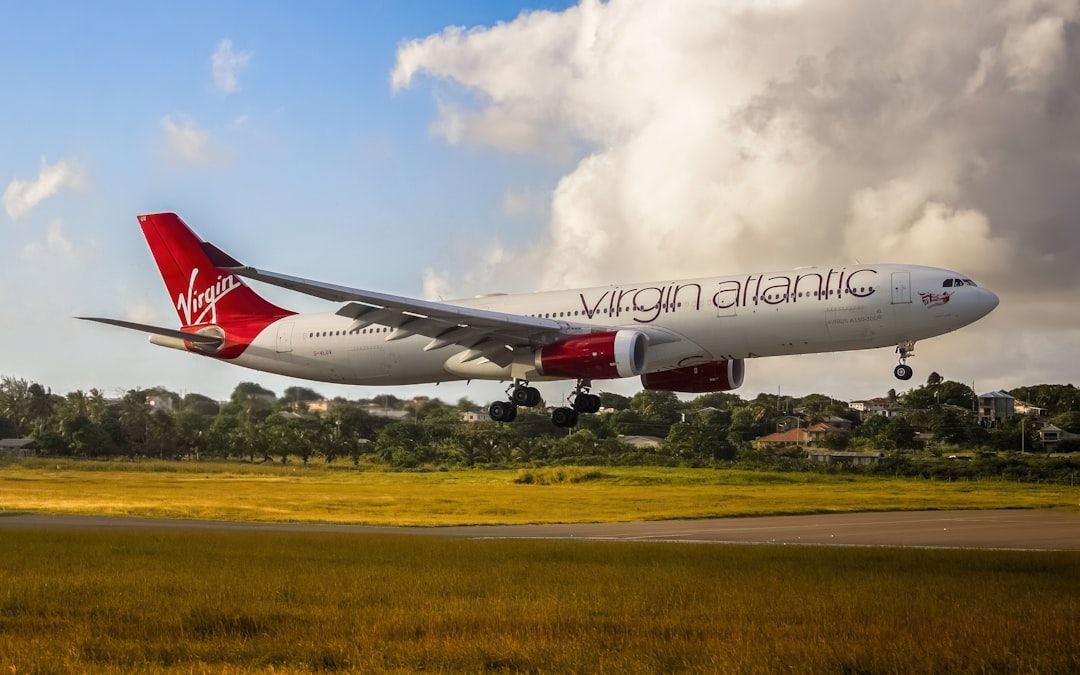(BUSAN) British Airways and American Airlines have tightened rules on unsafe travel adaptors, lithium batteries, and power banks after a run of onboard fire incidents since early 2025. Airlines warn that non‑compliant items can be confiscated, trigger fines, or even lead to denied boarding.
The latest changes, effective through summer 2025 and reaffirmed on August 29, set clear limits on spare batteries and restrict how passengers can charge devices in flight — especially on British Airways’ refreshed short‑haul aircraft that no longer offer AC outlets. The policy shift follows a January power bank fire that forced the evacuation of an Air Busan flight, and a separate March incident in Busan during boarding that renewed global focus on battery safety.

These rules matter for tourists who rely on travel adaptors and power banks to keep phones, tablets, and cameras working during long trips.
What British Airways now requires
British Airways’ new short‑haul cabins provide only USB‑A and USB‑C power ports. Traditional plug‑in travel adaptors are now useless on those flights because AC sockets have been removed.
Key points:
– Checked baggage: Spare lithium batteries and power banks remain banned. Devices with batteries packed in checked bags must be fully powered off (not in sleep mode).
– Cabin (carry‑on) baggage: A maximum of two spare batteries per person, including power banks.
– Terminals must be protected (taped or capped) or the item kept in original packaging.
– The airline treats this as automatic “operator approval” for up to two devices and two spares, but it urges travelers to carry a copy of the policy page to show at security or the gate.
– Smart luggage: Permitted only if batteries are below strict limits.
Full rules are posted on British Airways’ restricted items page: https://www.britishairways.com/en-us/information/baggage-essentials/liquids-and-restrictions.
What American Airlines now requires
American Airlines has aligned many restrictions with U.S. federal standards.
Key points:
– Checked baggage: Spare lithium batteries and power banks are explicitly banned.
– Carry‑on: Batteries are allowed within U.S. safety limits and must be produced for inspection if asked.
– Penalties: Failure to declare required items can lead to fines and potential criminal penalties under U.S. law.
– Partner/connecting flights: Policies can differ outside the U.S.; passengers should confirm requirements for each segment.
Detailed guidance, including links to aviation safety authorities, appears on American Airlines’ restricted items page: https://www.aa.com/i18n/travel-info/baggage/restricted-items.jsp.
Practical impact on travelers
VisaVerge.com notes the most visible change is the move away from AC outlets on British Airways’ short‑haul fleet. That alters how people plan charging on board.
- Instead of universal plug adaptors for UK/EU/US sockets, passengers now need the right USB‑A or USB‑C cables for every device.
- Cable quality and length become more important, especially if you want to use a phone while charging from a seatback port.
- For families, ensure kids’ tablets and game devices charge via USB, or bring a compact USB‑C PD cable that can top up multiple devices faster.
- The switch reduces risks from faulty travel adaptors that have caused short circuits and overheating.
Safety trend and regulatory response
Data in the United States shows a sharp rise in lithium battery fire events since 2015, with reports reaching nearly two incidents per week in 2025. Experts warn that a damaged or poor‑quality cell can enter thermal runaway quickly, and cabin crews have limited time and tools to contain smoke and flames at altitude.
After the Busan incidents, several Asian and European carriers banned the in‑flight use of power banks altogether, even when carried legally in hand luggage. British Airways and American Airlines have not announced a universal in‑flight charging ban for all devices, but they stress that charging power banks is not allowed on many routes and may be restricted by local rules. This patchwork of regulations can confuse travelers who cross regions.
To avoid surprises, both airlines urge passengers to read updated guidance before flying.
Policy changes — quick overview
- British Airways:
- No AC outlets on new short‑haul aircraft; only USB‑A and USB‑C ports.
- Checked baggage: No spare lithium batteries or power banks; devices must be fully off.
- Cabin baggage: Maximum two spare batteries per person; protect terminals or keep original packaging.
- Smart luggage: Allowed only if within strict battery thresholds.
- Travelers are advised to carry a printout of the policy.
- American Airlines:
- Checked baggage: No spare lithium batteries or power banks.
- Carry‑on: Allowed within U.S. limits; items must be shown if requested.
- Penalties: Non‑compliance can include fines and possible criminal penalties.
- Partner flights: Policies can differ—check each airline on your itinerary.
Both carriers direct passengers to their online pages for full details and case‑specific questions.
Enforcement and regional mismatches
Regulators and carriers have focused on three areas:
– Quantity limits for spare batteries in the cabin.
– Strict bans on batteries in checked baggage.
– Onboard charging rules, including discouraging or banning charging power banks.
Regional differences exist:
– Some Asian jurisdictions may allow up to five spare batteries under 100Wh.
– British Airways and American Airlines limit travelers to two spares per person.
This mismatch can surprise passengers on multi‑leg itineraries. Gate agents and cabin crews enforce rules for their operating airline, which may differ from the departure airport’s rules. To avoid a last‑minute confiscation, travelers should adopt the strictest limit along their route.
For U.S. guidance on packing batteries, review the FAA’s “Pack Safe” resource: https://www.faa.gov/hazmat/packsafe/more_info/?hazmat=Battery.
Practical checklist — what travelers should do now
- Bring USB‑A and USB‑C cables, not just travel adaptors.
- Keep spares to two per person (power banks and loose batteries counted together).
- Protect battery terminals with tape, caps, or original packaging.
- Never put spare batteries or power banks in checked baggage. Keep them in carry‑on.
- Don’t charge power banks in flight if the route or airline bans it; ask crew if unsure.
- Print or save the airline policy on your phone to show staff if questioned.
- Check every airline on your ticket — partner carriers may have different rules.
- Replace worn or counterfeit adaptors; if an adaptor feels loose or overheats, don’t pack it.
Passengers can verify current restrictions at:
– British Airways: https://www.britishairways.com/en-us/information/baggage-essentials/liquids-and-restrictions
– American Airlines: https://www.aa.com/i18n/travel-info/baggage/restricted-items.jsp
Broader industry shift and final takeaways
Airlines are moving toward USB‑C as a cabin power standard. USB power:
– Reduces risks from cheap plug‑in adaptors.
– Minimizes heat at the seat.
– Allows one cable to charge multiple devices for lighter packing.
However, older gear or cameras without USB charging will require planning — photographers may need USB‑C PD cables or to charge on the ground between flights.
Passenger advocates warn that sudden rule changes can catch people off guard and result in lost gear or missed flights. To reduce stress:
– Follow the strictest rule along your route.
– Pack spares in clear protective cases.
– Carry receipts or specs showing watt‑hours when asked.
Airlines say the tighter standards aim to prevent fires. By cutting risky items on board and steering passengers to built‑in USB power, carriers hope to lower incident rates without banning personal electronics outright.
For many tourists, the takeaway is simple: Pack fewer batteries, pack better cables, and read your airline’s policy before you leave home. That small prep step can save your gear, your seat, and your schedule.
This Article in a Nutshell
British Airways and American Airlines updated rules on travel adaptors, lithium batteries and power banks after several onboard fire incidents in 2025, including a January power bank fire in Busan. British Airways’ short‑haul aircraft no longer include AC outlets; passengers must use USB‑A or USB‑C ports. Both carriers ban spare lithium batteries and power banks in checked baggage and permit up to two spare batteries per person in carry‑on, with terminals protected or in original packaging. American Airlines follows U.S. federal limits and requires items to be presented for inspection, warning of fines or criminal penalties for non‑compliance. Travelers should bring appropriate USB cables, protect battery terminals, avoid checking power banks, carry policy proof, and verify rules across all segments of multi‑leg trips. The industry is shifting toward USB‑C to reduce adaptor risks, but passengers with older devices must plan charging on the ground.








